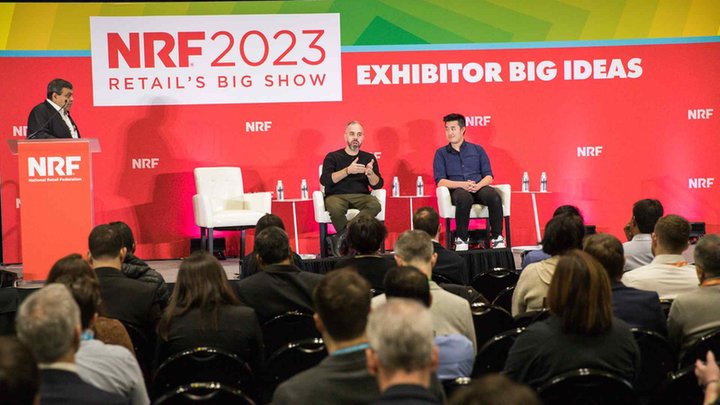The Devil’s in the Data: AI-Driven Allocation in a World of Constant Change
Produced by Impact Analytics

Prashant Agrawal, CEO and Founder of Impact Analytics, led a discussion on allocation, a topic that has not seen many changes in the last 30 years. The panelists discussed the difficulties in the allocation process, which doesn't account for different sales velocities. Prashant said, "Imagine if you have 300 stores, 100,000 skews of 90 days, and four backrooms, you have more than 10 billion permutations and combinations! Excel, which replaced paper, cannot handle 10 billion permutations and combinations. Solution-based on need-based variables also doesn't work, as they don't address seasonality, size of the store, SKU count, and location." Moreover, the increase in choice count, particularly in the fast fashion industry, has made allocation a daunting task. Prashant argued that AI and ML systems can help solve these issues accurately and efficiently. "What you're trying to do is also get people out of what's been an Excel paralysis," he quipped. AI can take into account major events, both national and local, and countries' various holidays, making allocation more efficient. Prashant stressed the importance of data in the AI and ML system.
Brian Price, VP of BI & Strategic Data Insights at PVH Corporation, echoed the point that allocation has become more complex and dynamic, requiring a change in the process and tools used. He emphasized the importance of the people-process-and-tools conversation in transitioning to a more advanced method of allocation. He highlighted the need to look into the supply chain in totality to optimize margins, instead of just focusing on getting units out of the distribution center at the cheapest cost. The cheapest pick strategy may not be the highest margin optimization in the long run. Brian also discussed how AI/ML tools can be of great value when it comes to multi-point methods of calculation one has to go through while handling multiple distributed areas and other complexities like seasonality. When it comes to breaking down the walls within distribution centers and incorporating an omni-channel inventory strategy, Brian stressed the importance of handling buying strategies and flexibility between channels. He also emphasized the need for change management conversations in making these significant changes -- how you up your processes, how you handle your buying strategies to incorporate an omni strategy and how you allow for flexibility between channels is a humongous change management conversation more than anything else. Lastly, Brian discussed how the ambiguity of a rollout can be managed effectively through testing and being transparent with the factors involved in the allocation process. It is important to get people on board with the idea that humans add value to the system, and that these factors should be incorporated into the system to optimize allocation.
Jeremy King, Sr. Director, North America Allocation at Coach, also emphasized the importance of training teams on the AI/ML allocation process and helping them understand what they're doing. "When you are dealing with AI/ML system, there's going to be ambiguity. When my allocators walk in every day, they have a ton of auto allocations and manual allocations to deal with, they have numbers that are spit out by the system, and they don't know every single number that goes into that calculation, it can be daunting. Getting them used to that is really, really important," emphasizes Jeremy. He believes that allowing teams to question the system and test and learn is necessary for them to trust and get comfortable with the system. He emphasizes that buying a model is not enough; it must be worked on to achieve better results. He acknowledges that retail changes rapidly, and back-and-forth interaction is necessary to improve the models. Brian also highlights that the results are essential, and accuracy can be increased by working with the team to optimize the model. He mentions that the human aspect of managing is still crucial. "At Coach, the allocation team acts as the experts and ambassadors of the system, translating and communicating the expectations to the buyers and merchandisers. We are still working through the process, but it's essential to get allocation right to fit other pieces of the puzzle," he notes.




